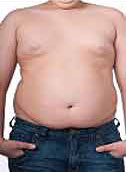
TUESDAY, March 22 (HealthDay News) — Obesity often saddles teenagers with a wide variety of conditions that boost the risk of heart disease, such as inflammation, insulin resistance and signs of trouble in the metabolic system, a small new study suggests.
“The metabolic abnormalities suggest that the process of developing heart disease has already started in these children, making it critical for them to make definitive lifestyle and diet changes,” said study senior author Dr. Ashutosh Lal, a pediatric hematologist at the Children’s Hospital and Research Center Oakland in California, in a news release provided by the American Heart Association.
The findings were scheduled to be released Tuesday at the American Heart Association scientific sessions, held in Atlanta.
The researchers compared the diets of 33 young obese people (aged 11 to 19 years) to 19 people in the same age group who were of normal weight. The participants’ weight category was determined using the body mass index score, which takes into account a person’s height and weight.
The researchers also examined blood test results for each of the participants, all of whom received health care at an inner-city clinic in Oakland. Two-thirds the participants in each group were female, and both groups were racially diverse.
The obese teens showed signs of inflammation, insulin resistance (a precursor to diabetes) and oxidative stress (which can lead to blood vessel damage), the investigators found.
“Looking at the numbers you would think these children might feel sick, but they did not,” Lal said. “They are apparently feeling well, but there is a lot going on beneath the surface.”
The problems could be related to poor diets that are low in fruit and vegetables, fiber and dairy products. The researchers found that teens in both groups weren’t getting proper nutrition because they didn’t eat enough of these types of foods, but the obese teens in particular consumed less dairy and fewer servings of fruit.
Potassium and vitamins A, C and D — which are found in fortified dairy products and deeply colored fruits and vegetables — were all found to be lacking in the diets of the obese children, the study authors indicated.
“Obese teens were consuming too few of the natural sources of antioxidants, fruits and vegetables, and may have increased antioxidant needs based on the inflammation associated with their extra [weight],” Lal said. “For their heart health, obese teens need to eat better, not just eat less.”
Experts note that research presented at meetings has not been subjected to the same type of rigorous scrutiny given to research published in peer-reviewed medical journals.
More information
The U.S. National Library of Medicine has details on obesity in children.

